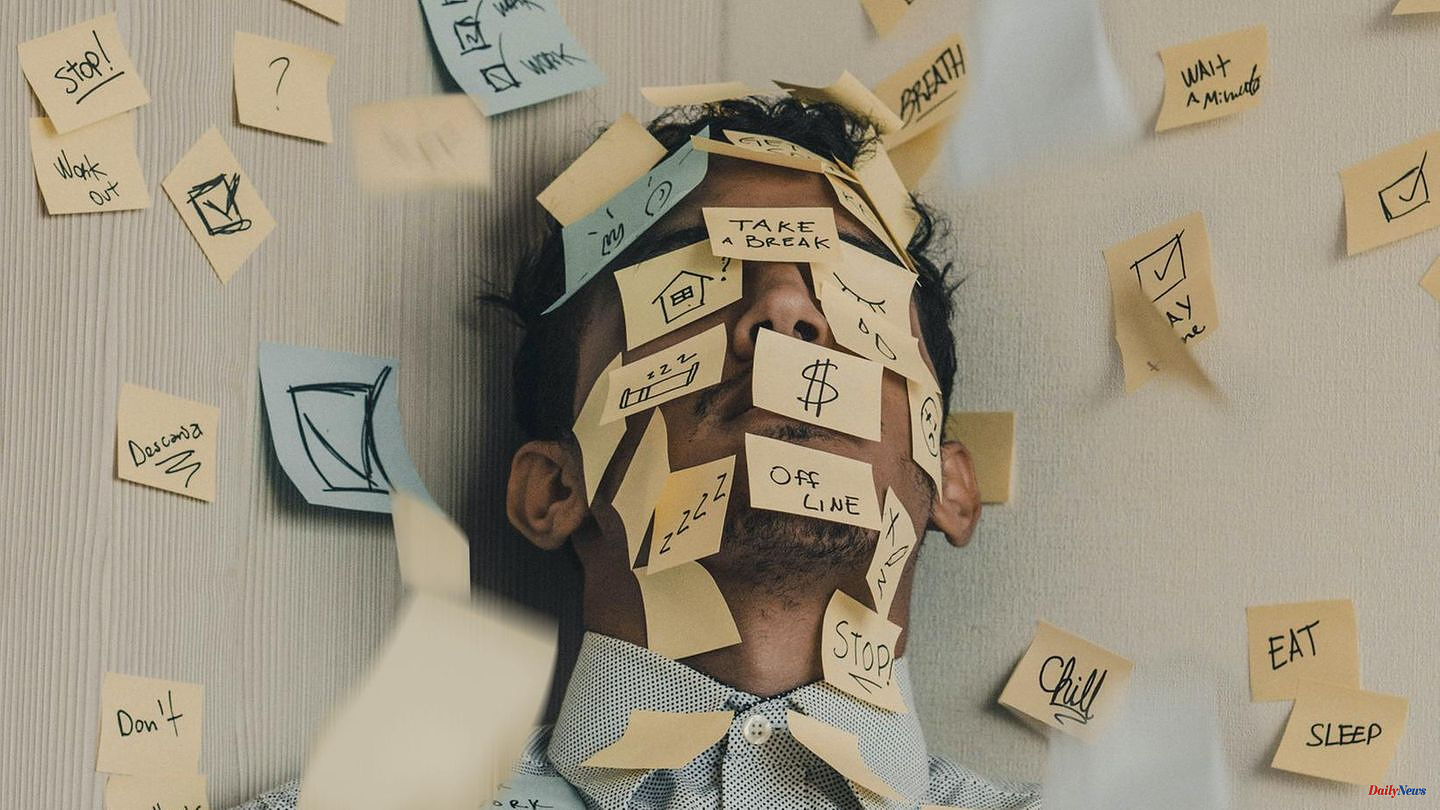Germany is under stress. Recent studies show that 64 percent of Germans are at least occasionally stressed, especially from their work. And we all know them, these people who rush from one appointment to the next. Time to take a deep breath? That's mostly missing. And sometimes one is almost surprised that such a workload can be sustained over the long term, given that the burn-out rate has been rising continuously for years. The psychologists Bert te Wildt and Timo Schiele call this phenomenon "burn-on".
In their book "Burn-on: Always shortly before burn out", they define the whole thing as a persistent and functional state of exhaustion. So it's about the people who are constantly under pressure and show some symptoms of classic burnout - but just continue to work normally. For comparison: The burn-out syndrome, on the other hand, is characterized by physical and mental exhaustion, increasing distance from one's own job and reduced performance.
Criteria that some of Bert te Wildt's patients, chief physician at the psychosomatic clinic in the Dießen monastery on Ammersee, did not meet. Nonetheless, the suffering of those affected was real. The psychologist noticed: The patients don't burn out, but keep going. However, that is not healthy either. Constant stress increases the risk of diseases such as depression or a stroke. And yet almost everyone probably knows the feeling of getting stuck in the hamster wheel and just functioning instead of really living.
The core problem is the same as with the big brother burn-out: we forget how to regenerate properly. The idea of performance not only follows us at work, but is also omnipresent in private life. As a result, at some point we no longer know anything other than this constant tension and the associated exhaustion - and we get used to this state. It's just normal to feel drained then. Many of those affected do not know why they are not doing well. It is obvious to the objective observer.
The symptoms of chronic fatigue are therefore easy to identify. Persistent tiredness and physical exhaustion are characteristic, often coupled with a persistent focus on performance. Nervousness, inner restlessness, agitation and sleep disorders can also be indications that you are on fire. Constant stress can also trigger physical complaints such as abdominal pain, loss of appetite, heart palpitations and headaches.
Keep burning instead of burning out - that's a dangerous tightrope walk. If you don't realize in time that constant tension is part of everyday life, you run the risk of working your way into a breakdown. It is therefore essential to take time out from time to time. A normal "healthy" state of exhaustion can be cured with a relaxed end of work or a restful vacation.
If you repeatedly fail to do this, it is worth critically examining your own stress level: When am I really carefree? What am I doing for myself? And when was the last time I really switched off? These are questions that can help you. If the answer to this is very difficult, it might be worth stepping on the stress brake.
Source: Book: Burn on: always shortly before burn-out; Counselor of the Barmer health insurance company












